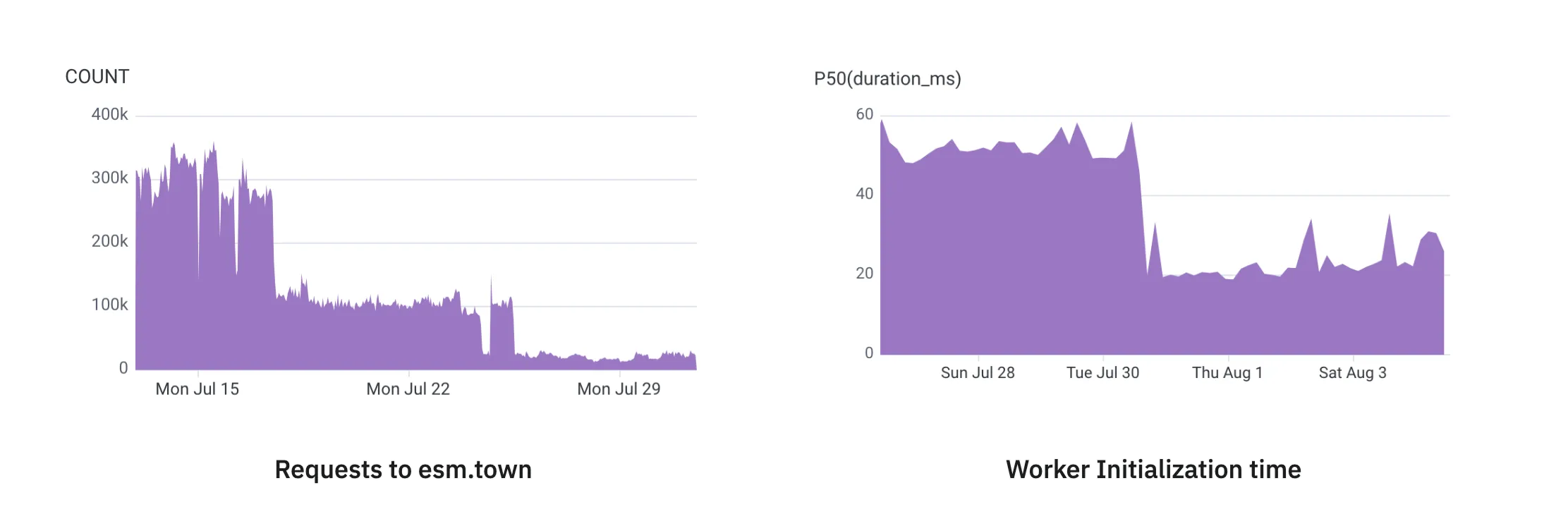How we lock your dependencies
Over the past few months, we rolled out dependency lockfiles in Val Town. When you save a val, we generate a deno.lock file. When your val is run any time in the future, it’ll use those exact same versions of your dependencies – effectively pinning your unpinned dependencies. When you save a new version of that val, we regenerate the lockfile from scratch, re-pinning your unpinned dependencies to whatever their current versions are at that new time.
Imports in Val Town
Val Town doesn’t have a package manager like npm, and it doesn’t use package.json files to declare dependencies. Imports
are listed at the top of the val and are resolved by our runtime, Deno. We support imports from the NPM and JSR registries using npm: and jsr: protocols, as well as imports
from any URL using https://. You can optionally specify
a version in the import statement itself. For example:
import lodash from "npm:lodash"; // unpinned, gets the latestimport lodash from "npm:lodash@4.17.21"; // pinned to 4.17.21
import { sqlite } from "https://www.val.town/v/std/sqlite"; // unpinned, gets the latestimport { sqlite } from "https://www.val.town/v/std/sqlite?v=6"; // pinned to version 6Everything’s better with lockfiles
You’ll see improvements on three fronts from lockfiles: stability, security and performance.
Stability: Libraries would change over time and vals would break. Now, if you build something and it’s working, it should generally keep working.
Security: If there’s a malicious dependency, it’s easy for the vulnerability to proliferate rapidly without dependency pinning. Lockfiles will slow things down, and prevent certain types of attacks from being effective. Additionally we do integrity checking on the contents of dependencies. If the contents of a module have changed unexpectedly, we won’t run your code.
Performance: Lockfiles cache the whole dependency tree, so we make fewer requests, and we can make requests in parallel. Module fetches to Val Town fell by 80%. Worker initialization latency (P50) dropped 50%.

Getting clever with updates
If you’re a passionate Val Town user, you may notice an issue with this new lockfile scheme as described so far. What happens when you are working on a collection of vals that all depend on each other?
Maybe you have your CSS styles in one val that’s imported into an HTTP val. If you update your styles, you’d expect the HTTP val to pick up the changes automatically.
Naively, lockfiles would break this pattern. You would update your CSS and you’d need to re-save all vals that import that one to pick up the changes.
We don’t want to make you do that. So when you save a val, we find all the vals in your account that depend on that val and mark their lockfiles for regeneration. That way you can keep rapidly iterating and we’ll make sure to update dependency relationships in your vals.
To be clear this pattern only works for you and your dependencies. If you and a friend are iterating closely on a collection of vals, you will need to re-save your vals that import your friend’s vals to pick up their newest versions. We think this is a good compromise between security and convenience for now. Longer term, we plan to create shared collections of vals that teams can fluidly iterate on together.
Going forward
We’ve seen a variety of situations where an https import has a subtle change and a val is halted from running because of an integrity error against what should be the same exact version. If you run into this issue and are confident it’s not an exploit, you can fix it by re-saving your val, which will regenerate the lockfile. We’re working on the best way to handle these issues without removing integrity checks entirely.
This is just the beginning of surfacing more granular control over dependencies in Val Town. If you have a specific feature you’d like to see, or want to edit your dependencies in specific ways please make a request in our product discussions.
Edit this page